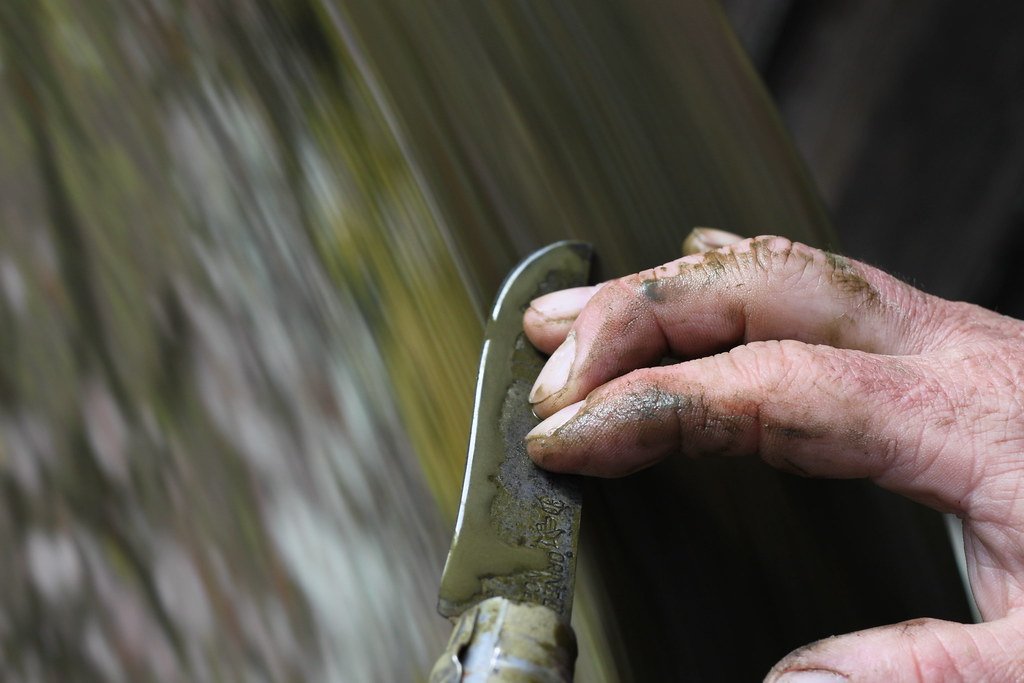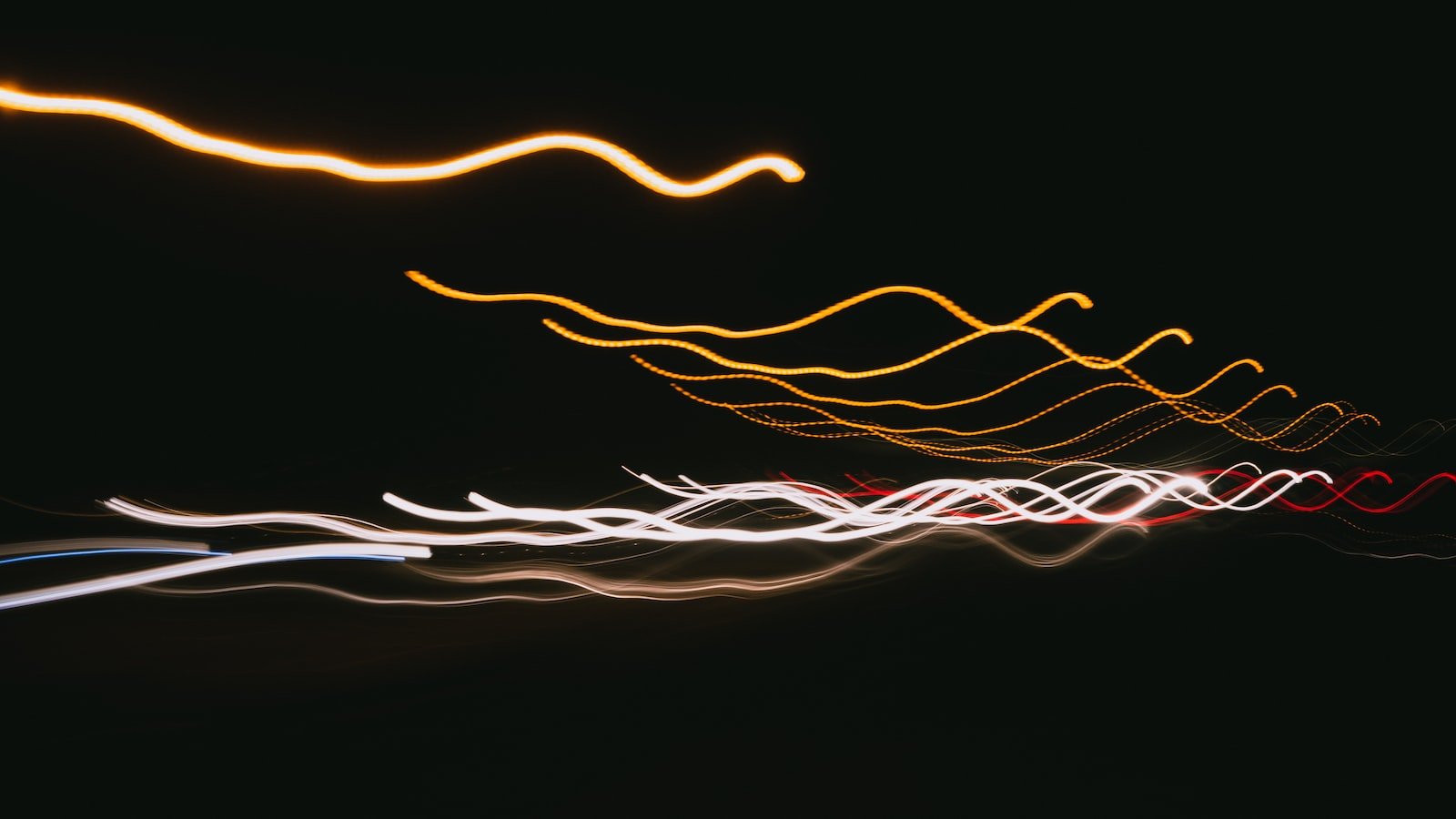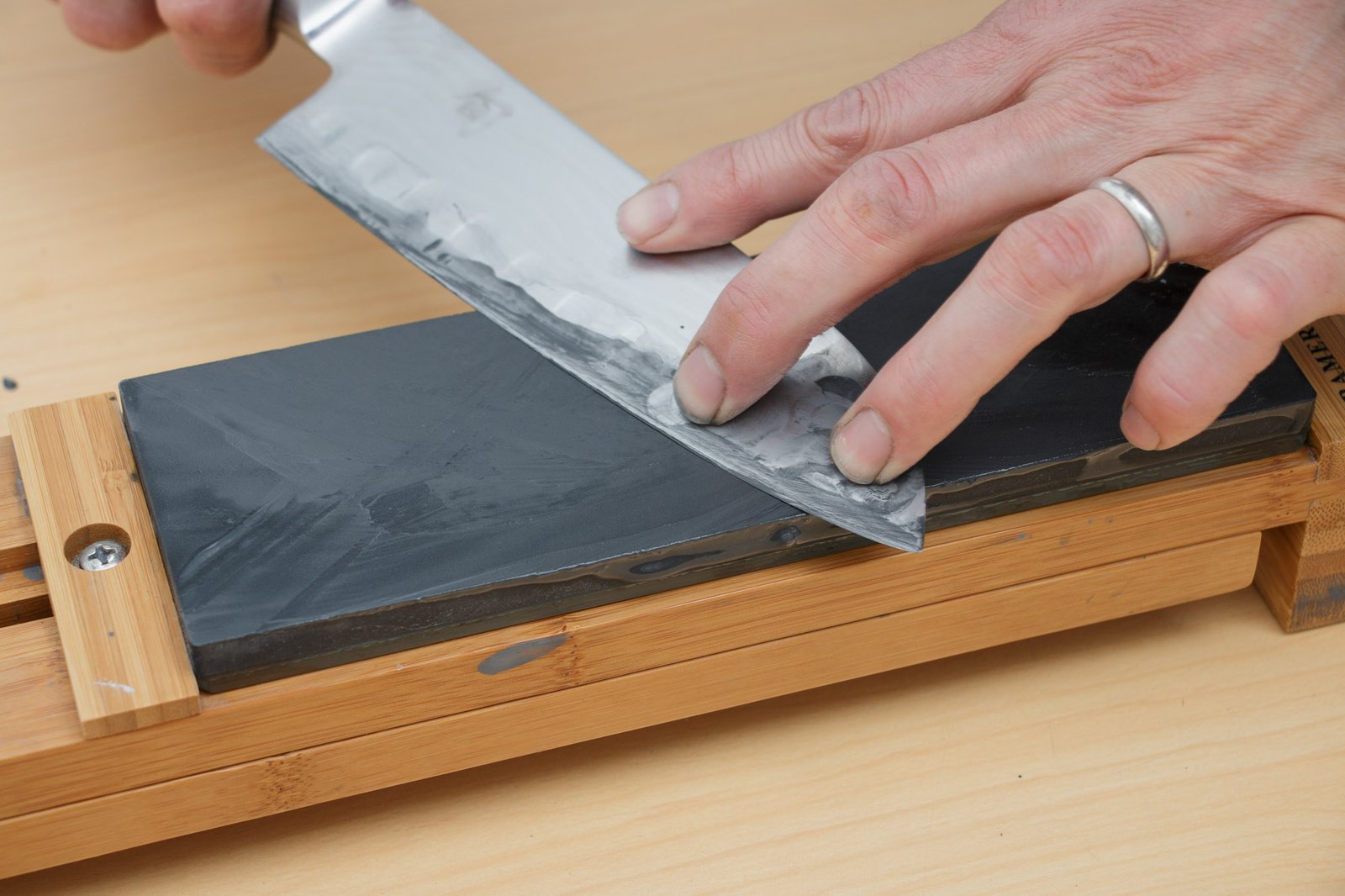In a world where pixels speak louder than words, encapsulating moments through the lens of a camera has become an undying passion for many. Whether you’re an amateur enthusiast or a seasoned professional, the pursuit of capturing breathtakingly clear photos can sometimes prove to be an elusive quest. But fear not, fellow pixel priests and shutter gurus! Today, we unveil the secrets to transforming your snapshots into visual masterpieces. Buckle up as we embark on a riveting journey through the realm of sharpening and noise reduction techniques, where every pixel is polished, every detail revived, and clarity reigns supreme. Get ready to witness your photographs transcend the boundaries of ordinary reality, punctuating the very essence of the extraordinary. Welcome to the world of sharper images and noiseless wonders!
Sharpening and Noise Reduction: Techniques for Clearer Photos
When it comes to capturing stunning photographs, sharpness and clarity are crucial elements that can enhance the overall impact of an image. To achieve this, photographers often employ various techniques for sharpening and reducing noise in their photos. In this post, we will explore a few tried-and-tested methods that can help you bring out the fine details and eliminate unwanted noise, resulting in clearer and more visually appealing photographs.
1. Unleash the Power of Sharpening
Sharpening is a post-processing technique that enhances the crispness and clarity of the details in your photos. Here are a few sharpening techniques you can try:
- Unsharp Mask: An effective technique that selectively enhances the edges in your photos, creating a sharper appearance.
- High Pass Filter: By applying a high-pass filter and adjusting the settings, you can accentuate the edges while preserving the overall smoothness of your image.
- Smart Sharpen: Utilize this feature available in various editing software to intelligently enhance details without introducing excessive noise.
2. Taming the Noise Beast
Noise is a common foe that can mar the quality of your photographs, especially in low-light or high ISO situations. Here are some techniques to effectively reduce noise:
- Noise Reduction Filters: Image editors offer dedicated noise reduction filters that diminish unwanted noise while retaining the essential details of your photo.
- RAW Format Conversion: Performing noise reduction during the RAW conversion stage can yield superior results as compared to applying it later in the process.
- Selective Noise Reduction: Carefully apply noise reduction techniques only to the areas that exhibit noticeable noise, ensuring that the details in other parts are not sacrificed.
By experimenting with these different sharpening and noise reduction techniques, you can elevate the clarity and visual impact of your photographs to new heights. Remember, each photograph is unique, so don’t be afraid to try different approaches and find the combination that brings out the best in your images!

Understanding the Basics: Importance of Sharpening and Noise Reduction
In the exciting world of photography, two fundamental techniques hold the power to transform an average image into a masterpiece: sharpening and noise reduction. These essential processes allow photographers to enhance the clarity and visual impact of their photos, ensuring each detail stands out while reducing unwanted distractions. Let’s delve into the importance of sharpening and noise reduction in more depth, unveiling the secrets behind their transformative abilities.
Sharpening: Unveiling the Fine Details
Sharpening, a technique akin to adding a touch of magic to photos, is more than just making an image crisper. It is about revealing the hidden potentials and details that seem to leap out of the screen or print. By sharpening an image, photographers can amplify the edges, lines, and textures, resulting in a stunning visual experience for the viewer. It enables the subject to become more defined, especially in portrait photography, allowing every intricate aspect to shine through, from the twinkle in someone’s eye to the texture of a petal.
- Contrast Enhancement: Sharpening helps to heighten contrast, making different elements of the photo stand out.
- Achieving Clarity: By sharpening, photographers are able to bring clarity to the details, making an image appear more lifelike.
- Highlighting Structure: The sharpening process accentuates the structure and form in an image, giving it a more solid and three-dimensional appearance.
Noise Reduction: Defeating the Image Interference
Imagine a serene landscape or an enchanting portrait marred by tiny distracting dots or grainy patches, interrupting the visual experience and stealing the spotlight. That’s where noise reduction comes into play. It works as a magical eraser, eliminating digital noise from the image caused by factors like low light or high ISO settings. By reducing the noise, photographers can deliver clean, smooth, and visually pleasing photos, inviting the viewer into an undisturbed and immersive journey through the captured moment.
- Preserving Details: Noise reduction techniques help to maintain the overall details of an image while targeting and removing unwanted distractions.
- Enhancing Aesthetics: By eliminating noise, photos become visually cleaner, allowing the focus to shift to the subject, colors, and composition.
- Optimizing Print Quality: Noise reduction ensures that images, when printed, appear sharp, crisp, and devoid of unwanted digital artifacts.
Sharpening and noise reduction are like the yin and yang of digital image enhancement. By understanding their basics and harnessing their power, photographers can elevate their craft, turning ordinary snapshots into extraordinary works of art. So, sharpen those details and silence that noise, and watch as your photographs transform into captivating visual stories.

Exploring Different Approaches: Comparative Analysis and Key Differences
When it comes to finding the best solution to a problem, exploring different approaches through comparative analysis can provide valuable insights. By examining the various methods and techniques available, we can uncover key differences that may not be immediately apparent. This allows us to make informed decisions and choose the approach that aligns best with our unique goals and requirements.
One approach that stands out is the agile methodology. Known for its flexibility and adaptability, agile focuses on incremental development and continuous feedback. It embraces the concept of self-managing teams, allowing for faster iterations and quicker product delivery. In comparison, the waterfall approach follows a linear path, where each phase must be completed before moving on to the next. While it offers a clear and structured workflow, it may lack the flexibility required for rapidly changing projects.
Another notable approach is design thinking. This human-centered method emphasizes empathy, collaboration, and iterative testing. By immersing ourselves in the user’s perspective, we can identify pain points and create products that truly address their needs. On the other hand, the Lean Startup methodology focuses on conducting experiments and gathering customer feedback to validate assumptions and pivot when necessary. It enables entrepreneurs and innovators to build, measure, and learn in a highly efficient manner.
Ultimately, the choice of approach depends on the nature of the project, the team’s expertise, and the desired outcomes. While some methods excel in quick prototyping, others may be more suitable for long-term, large-scale projects. By conducting thorough comparative analysis and understanding the key differences between approaches, we can make educated decisions that lead to successful outcomes and innovative solutions.

Mastering Sharpening Techniques: Step-by-Step Guide for Enhanced Clarity
In the quest for achieving breathtakingly sharp images, mastering sharpening techniques is a must for any photographer. Sharpening can greatly enhance the clarity and details in your photos, taking them from good to exceptional. In this comprehensive step-by-step guide, we will walk you through the process of sharpening your images like a pro, ensuring that every detail shines through with crystal-clear precision.
Understanding the basics
Before diving into the various sharpening techniques, it’s important to understand the basics. Sharpening is the process of emphasizing the contrast between neighboring pixels, giving the illusion of sharper details. It’s crucial to strike a balance between sharpening enough to enhance the clarity without introducing unsightly artifacts. By targeting specific areas or sharpening the entire image, you can achieve different effects and breathe life into your photographs.
The power of smart sharpening
One of the most effective techniques to master is smart sharpening. This technique allows you to selectively sharpen different areas of the image based on their frequency and edges. By using algorithms, smart sharpening can detect and enhance high-frequency areas without affecting smoother, low-frequency regions. This precision ensures that every detail, from fine textures to intricate patterns, is beautifully enhanced while keeping noise and artifacts at bay.
Unlocking the potential with advanced tools
Beyond the basic sharpening tools, discovering and harnessing the power of advanced sharpening tools can take your images to new heights. Tools such as High Pass sharpening, Frequency Separation, or even using plugins like the acclaimed ”Unsharp Mask” can provide you with additional control and fine-tuning capabilities. By exploring these tools and experimenting with different settings, you can push the boundaries of your creativity and achieve unprecedented levels of clarity in your photographs.
Remember, sharpening is a powerful tool that can make or break an image. With this step-by-step guide, you’re on the path to mastering sharpening techniques and unlocking the full potential of your photographs. So grab your favorite image, follow along, and let’s delve into the world of enhanced clarity like never before!

Effective Noise Reduction: Proven Methods to Minimize Unwanted Distortion
When it comes to audio production or capturing crisp sound, unwanted distortion and noise can be a real nuisance. Fortunately, there are several proven methods that can significantly reduce these disturbances, helping you achieve high-quality audio without compromising clarity.
1. Advanced Noise Suppression Software
One of the most effective tools in combating unwanted noise is advanced noise suppression software. Utilizing sophisticated algorithms, these programs can intelligently identify and remove background noise while preserving the integrity of your desired sound source. Whether you’re working with recordings, streaming audio, or live performances, incorporating noise suppression software can work wonders in enhancing the overall listening experience.
2. Isolate and Shield Your Recording Environment
In some cases, the solution lies not in software, but in creating an optimal recording environment. Isolating the recording area from external noise sources such as air conditioners, footsteps, or traffic can vastly improve the clarity of your recordings. Using thick curtains, acoustic panels, or even constructing a dedicated soundproof room can help minimize ambient noise, ensuring your audio is captured without unnecessary distortion.
3. Employ High-Quality Microphones
Investing in high-quality microphones can make a significant difference in noise reduction. Look for microphones that offer features like directional focus, which enable them to pick up sound primarily from the desired source while reducing interference from surrounding noise. Additionally, opting for microphones with built-in noise-canceling technology can further enhance the clarity of your recordings and minimize unwanted distortion.
By incorporating these effective noise reduction techniques into your audio production workflow, you can ensure that unwanted distortion becomes a thing of the past. Whether you’re recording podcasts, creating music, or producing videos, achieving pristine sound quality will elevate your content and captivate your audience.

Top Recommendations: Cutting-Edge Tools and Software for Impeccable Results
When it comes to achieving impeccable results, having the right tools and software at your disposal can make all the difference. In this section, we’ll introduce you to a hand-picked selection of cutting-edge tools and software that are guaranteed to elevate your work to the next level.
1. Design Wiz: If you’re looking to create stunning visual designs effortlessly, Design Wiz is your secret weapon. This innovative software combines artificial intelligence with an intuitive user interface, allowing even beginners to craft professional-looking graphics, presentations, and more. With its extensive library of templates, icons, and fonts, Design Wiz empowers you to bring your ideas to life with ease.
2. CodeMaster Pro: Are you a developer seeking unparalleled coding efficiency? Look no further than CodeMaster Pro. This advanced code editor is equipped with intelligent features like auto-completion, error detection, and real-time previews. Say goodbye to tedious debugging and hello to seamless coding. Whether you’re coding in HTML, CSS, JavaScript, or any other programming language, CodeMaster Pro is the ultimate companion for flawless development.
3. Analytics Wizard: Unlock the power of data-driven decision-making with Analytics Wizard. This comprehensive analytics tool provides a wealth of insights into user behavior, website performance, and conversion rates. With its user-friendly interface and customizable dashboards, you can effortlessly track key metrics and identify trends. Make data-driven decisions that optimize your business strategy and drive impeccable results.
Final Thoughts
Now that you have discovered the art of sharpening and noise reduction techniques, your photos are poised to transcend the boundaries of clarity and captivate every beholder. Armed with the knowledge of these invaluable tools, gone are the days of blurry landscapes and grainy portraits.
As you embark on this journey towards clearer and more breathtaking photographs, remember to embrace experimentation and unleash your creative spirit. Allow the sharpening techniques to enhance the intricate details that breathe life into your compositions, revealing hidden textures and sharpening the edges of your subject matter with meticulous precision.
And let us not forget the magic of noise reduction, seamlessly eradicating the pesky grains that once marred your images. With its alchemical touch, it unleashes the true potential of your visuals, transforming them into visual symphonies of smoothness and tranquility.
As you apply these techniques to your photography, tread with subtlety and grace. Remember that an overdose of sharpening can result in unnatural artifacts, while excessive noise reduction can strip away valuable texture and character. Strive for balance, delicately harmonizing sharpness with softness, noise with clarity.
Be it the roaring waves crashing against a vibrant sunset, the intricate patterns etched on a butterfly’s wings, or the inquisitive eyes of a child lost in wonderment, let the techniques of sharpening and noise reduction be your allies. Together, they hold the key to revealing the beauty and essence hidden within each photograph, transforming them into timeless visual masterpieces.
So, armed with your newfound knowledge, embark on this voyage of discovery. Embrace the challenges that lie ahead, for the path to clearer photos is one that rewards the persistent and sparks the flame of endless creativity. Go forth and unleash the power of sharpening and noise reduction, and witness your photography transcend the realms of clarity, leaving an indelible mark on all who lay eyes upon it.




